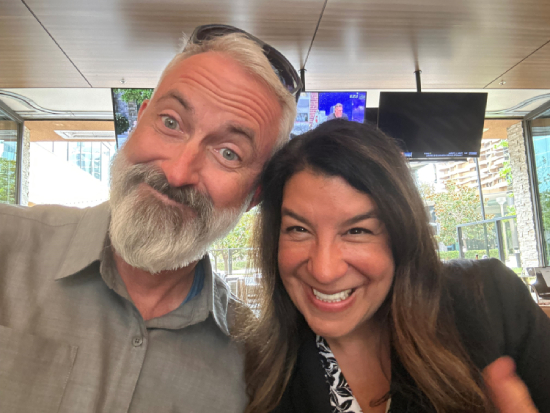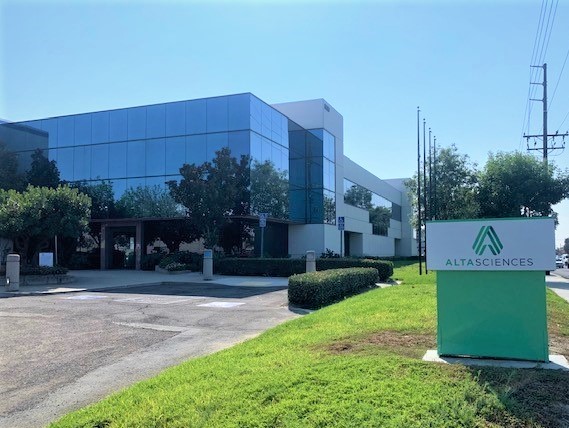4 Essential Topics to Cover in Your First CRO Meeting

Starting a partnership with a contract research organization (CRO) is a sometimes intimidating—yet exciting—first step in your drug development journey. Whether you’re at the discovery phase or gearing up for a clinical trial, your first conversation with a CRO is an excellent opportunity to assess the cultural fit and collaborative potential.
talking points to expect in your first cro meeting
To help you navigate this pivotal moment, we've gathered valuable insights from two of our industry experts about what to expect. Lisa Sanford, Vice President of Business Development at Altasciences, brings over 25 years of experience in business development across CRO/CDMO early development services, drug discovery, genomics, and diagnostics.
She is joined by Chad Rathlef, Executive Director of Strategic Partnerships (also at Altasciences), who has dedicated over two decades to delivering consultative sales solutions for early development clients, guiding them from bioanalysis through first-in-human Phase I and Phase IIa patient studies.
During this first discussion with a CRO, you can expect to cover:
- project history
- project scope and requirements
- timelines
- budget
Let’s explore these talking points in detail.
1. Your Project History

Be open to sharing relevant information about your study history and development plans. This will help you and the CRO reach a mutual understanding of the next steps, objectives, and ideal path forward, allowing for smooth progression further down the line.
“Be prepared to share necessary information about your study with the CRO,” says Chad. “Once a confidentiality agreement is in place, it’s useful to provide the CRO with data, such as the structure of your molecule, to help us improve our method development and budget estimates”.
In addition to sharing current development plans, it’s also helpful to provide a summary of any past phases you may have completed, whether in discovery, preclinical, or Phase I, II, or III trials. Let the CRO know any key outcomes from each. Also, high-level data points, such as efficacy data, safety profiles, or unique findings, offer valuable insight for the CRO to accurately gauge project needs.
2. Your Project Scope and Requirements

Clearly outlining the current status of your project in the development pipeline—whether it's in preclinical stages, IND-ready, or clinic-ready—is essential. Specify your short-term objectives, such as starting a new trial phase, submitting additional regulatory documents, or expanding into new regions, along with your long-term goals. Being transparent about your needs and expectations will foster trust and enable the CRO to accurately craft a tailored strategy.
The CRO may also ask whether you need full-service support, or select services, such as data management or bioanalysis. “Sponsors often start with a single study in mind, like a first-in-human study. As the CRO, our role is to provide a broader perspective and identify additional areas where our expertise can support their development program,” explains Lisa.
“For example, at Altasciences, we can discuss clinical development strategies that include adding study arms such as ethnobridging, or early precision QT analysis assessments. We can also outline parallel next steps for Phase Ib/IIa plans and develop feasibility strategies for patient recruitment on upcoming studies.”
By sharing your program goals and milestones such as Phase II objectives and financing targets, or exit strategies, you give CROs like Altasciences the insights needed to align their services with your project’s trajectory.
3. Your Drug Development Timelines
In your first meeting, expect the CRO to inquire about target dates, such as regulatory submissions, material availability, dosing kick-offs, or even corporate objectives, like financing rounds or future phases of development.
A reliable CRO understands that you’re not expected to know everything, and at Altasciences, our experts are here to collaborate with you and develop a strategic roadmap tailored to your needs. One of the first steps in this process is highlighting key milestones already achieved. If you have specific timelines in mind, such as a planned start date, enrollment completion, initial data readouts, or an upcoming regulatory submission, sharing this information early on is invaluable.
It’s equally important to communicate your long-term plans. Taking the time to outline broader objectives, such as drug approval, market entry, or expansion into new markets, helps the CRO fully understand your requirements. This ensures they can plan effectively and keep everything on track, aligning with your goals and expectations.
When discussing regulatory timelines with a CRO, it’s essential to outline your submission schedules, such as when you plan to submit key documents to regulatory authorities (e.g., IND, CTA, NDA, BLA).
“If you’ve got an idea of your regulatory strategy already, let the CRO know,” advises Chad. “Regulatory submission dates should be taken into consideration early on, and being prepared to talk high-level timelines helps us as a CRO to help you.”
Lisa also suggests talking about your studies early on. For example, if you're initiating preclinical testing, it's helpful to discuss whether the test article is available, if any data exists from PK studies, and whether a bioanalytical method has been developed. Similarly, if you're preparing for first-in-human clinical trials, don’t wait until the safety assessment is complete; begin discussions while your pivotal toxicology studies are still ongoing.
Establishing key dates, such as interim or top-line data requirements, lays the groundwork for effective planning by prompting important questions and mapping out strategies tailored to your unique needs. It’s also crucial to outline key decision-making milestones that will require input or support from the CRO, ensuring everyone is aligned and facilitating smoother collaboration and timely decision-making throughout the drug development program.
4. Budget
After reviewing your budget expectations and plan, the CRO will present their budget grid, which provides a comprehensive overview of potential costs with detailed breakdowns, typically organized by resources, capabilities, and services specific to their organization. If the initial budget grid doesn’t align with your expectations, the CRO can suggest different approaches to stay within your budget, such as service bundling, payment schedules, and flexible resource allocation.
Open and clear dialogue will help align the proposal with your study/program goals while respecting a realistic budget.
Questions You Should Ask During Your First CRO Meeting
To move forward with confidence, you need to be reassured that the CRO has not only the capabilities but also the experience to take on your studies. Here are some additional questions you should ask (if they haven’t already been addressed):
What is your experience in the areas relevant to my project?
When engaging with a CRO, it's essential to understand their knowledge in the areas relevant to your studies. Asking about similar studies they’ve conducted provides insight into their ability to manage the unique challenges your study may present. A well-qualified CRO should be able to discuss past studies, share examples of similar work, and highlight expertise that aligns with your study’s requirements.A good CRO goes beyond simply confirming their experience; they are transparent about their capabilities and any potential limitations. They may provide strategies for addressing areas outside their immediate expertise or suggest additional resources that could complement their efforts.
What is your regulatory history?
Once a confidentiality agreement is in place, the CRO should be able to share their site and study audit records, offering valuable insights into their adherence to regulatory guidelines and their ability to meet compliance standards.This regulatory history can highlight their ability to manage potential risks and challenges that may arise during your study. It’s also important to ask about their past interactions with regulators, including inspections and their outcomes. These insights demonstrate the CRO’s commitment to accountability and maintaining high-quality standards throughout the process.
How do you plan for unexpected changes during my project?
A knowledgeable CRO should be able to anticipate specific program needs and provide a customized roadmap for your program. However, it's equally important to assess whether the CRO can handle shifting priorities and pivot quickly if and when changes occur. Drug development is rarely straightforward—regulatory inquiries, IP delays, or protocol amendments can impact timelines unexpectedly.A reliable CRO will proactively anticipate and mitigate program-specific roadblocks, and have procedures in place to assess impacts and mobilize resources quickly.
“Although it’s important to plan in advance and start conversations early, don’t hesitate to ask, ‘how fast can you go?’” says Chad. “Sometimes there are situations where you need to pivot very quickly or change a strategy. Maybe something changes with the regulatory agency’s guidelines, or submission protocol, for example. Knowing that the CRO is able to make last-minute changes is invaluable.”
Setting the Stage for a Successful CRO Partnership

Your first meeting with a CRO is an opportunity to set clear expectations and establish open communication. CROs like Altasciences are here to support you through every stage of drug development, and you’ll get the most out of that initial conversation by showing up and willing to share.
This initial discussion is also a chance to evaluate how well the CRO can adapt to your ever-evolving needs, laying the groundwork for a successful partnership.
At Altasciences, we view each client’s project as our own—your success is our success. With these insights from Lisa and Chad, you’re ready for a productive and collaborative first encounter.
Get in touch with Altasciences today to see how we can help you with your drug development journey.



